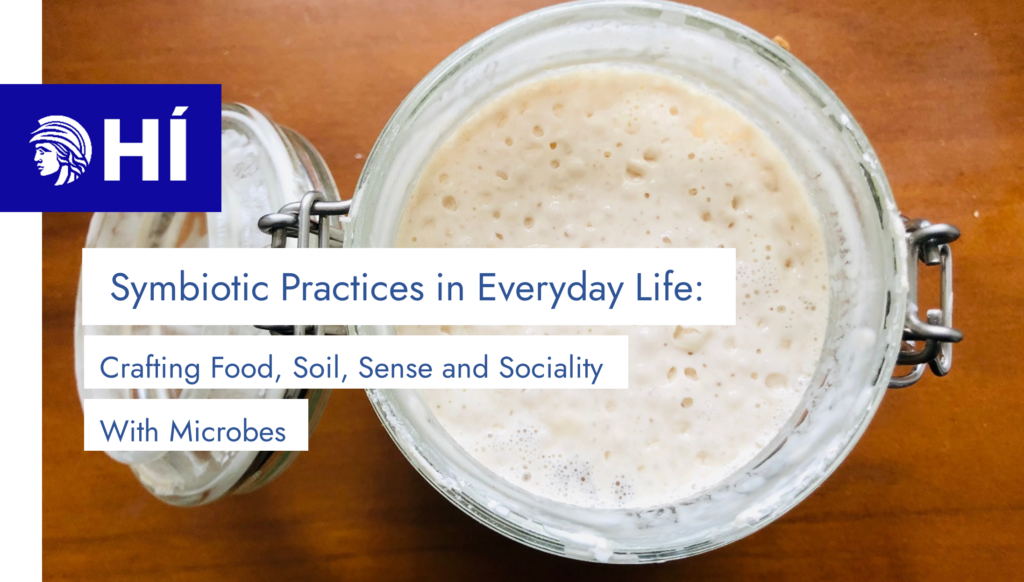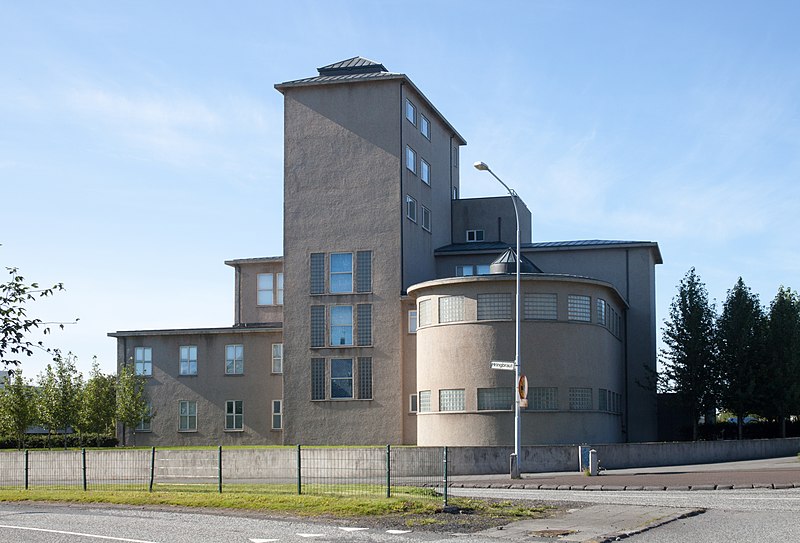
What is it that unites skyr cultures, sourdough mothers, bokashi buckets and composting toilets? How is our own gut related to pressing environmental and social issues? To address these questions, we need a radical change of perspective. While unassuming and invisible to the human eye, the microbial world hosts, envelops and nurtures us and is key to human survival in a fast-changing world. Exploring the „culture of cultures“ through foodways, gut flora farming and composting, this two-day conference offers a truly multi-disciplinary approach to human-microbe relations. Presenters come from fields of knowledge as diverse as microbiology, food science, folkloristics, anthropology, nutritional medicine, sociology, medical humanities, design and performing arts. They share a focus on the crucial role that human-microbial relations play in conserving the environment, human health, social relations, and culture.
Symbiotic Practices in Everyday Life is a 2-day conference in Reykjavík on April 11 and 12, between 9 am and 5 pm, at the conference hall of the National Museum in Suðurgata, next to the University of Iceland. A number of speakers will approach human-microbial interaction, symbiotic practices, and crafting cultures from a wide-angle cross-disciplinary perspective.
Program
Thursday, April 11: Fermented Foods and Gut Microbiota
9:00 Start of Day 1 sessions
Valdimar Tr. Hafstein (University of Iceland), Symbiosis: Crafting Food, Soil, Sense and Sociality with Microbes
Jón Þór Pétursson (University of Iceland), Mother Cultures: Skyr Microbes and Dairy Maids
10:00-10:30 Coffee Break
Bernhard Tschofen (University of Zurich), Symbioses: Contradictory Stories From the Alps
Ragnheiður Maísól Sturludóttir (University of Iceland), You‘ll Never Bake Alone
Snorri Páll Ólason (MATÍS), The Story of Hákarl: How Bacteria Transform Toxic Greenland Shark Into a Unique Icelandic Fermented Fish Product
12:00-13:30 Lunch Break
Salla Sariola (University of Helsinki), Indigenous and Scientific Rice Beer Fermentation Cultures in Assam, India
Birna Guðrún Ásbjörnsdóttir (University of Iceland), Inner Ecosystems: The Environmental Impact on Microbiota-Gut-Brain Axis and Mental Health
Agnes Þóra Árnadóttir (MATÍS), Effects of Mothers’ Diet on Gut Microbiota In Icelandic Infants And Toddlers
15:00-15:30 Coffee Break
Bryndís Eva Birgisdóttir (University of Iceland), The Secret of Fermented Food: A Tale of a Randomized Controlled Intervention In Iceland
Áki Guðni Karlsson (University of Iceland), Telling the Gut: Interspecies Communication and the Human Body
Panel Discussion for Day 1
Panel moderator: Prof. Regina Bendix (University of Göttingen)
17:00-19:00 Reception at Litla torg (Háskólatorg – University bldg.)
Grugg & Makk, Wild Ferments: Token of Flavor
Friday, April 12: Microbiomes, Environments and Compost
09:00 Start of Day 2 sessions
Gísli Pálsson (University of Iceland), The Microbes are Back
Amber Benezra (Stevens Institute of Technology), The Social Microbiome: Anthropology, Microbes, and Cross-Disciplinary Collaboration.
10:00-10:30Coffee Break
Adam Bencard (University of Copenhagen), Environmentality: Microbiome Research and a Relational Rethinking of Environments
Tinna Grétarsdóttir & Sigurjón Baldur Hafsteinsson (University of Iceland), Re-thinking the ‘Good Life’: Licking and Chewing with Cows in the Turf House
Daniel Münster (University of Oslo), Fermentation as Ontological Politics: What Agrarian Ferments Do in Indian Natural Farming Systems
12:00-13:30 Lunch Break
Helga Ögmundardóttir (University of Iceland), Compostories
Eysteinn Ari Bragason (University of Iceland), “Recognising Yourself As Them”: Becoming With the Compost Heap
Rósa Ómarsdóttir, MOLTA: An Artistic Ecosystem
15:00-15:30 Coffee Break
Björk Brynjarsdóttir, Melta: Cultured Waste
Veera Kinnunen (University of Oulu), Smelly Engagements: Developing Metabolic Imaginations Through Urban Composting
Panel Discussion for Day 2
Panel Moderator: Prof. Regina Bendix (University of Göttingen)
Scientific Committee
Valdimar Tr. Hafstein (chair), Regina Bendix, Bryndís Eva Birgisdóttir, Áki Guðni Karlsson, Viggó Þór Marteinsson, Bernhard Tschofen, Helga Ögmundardóttir
